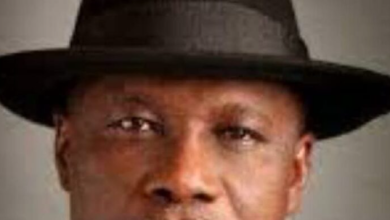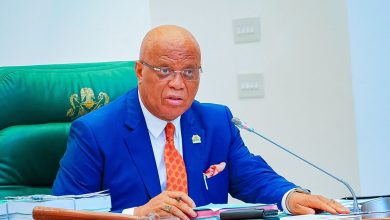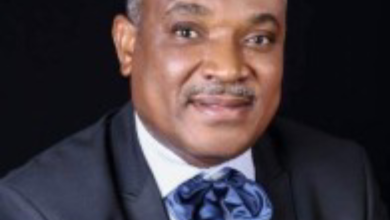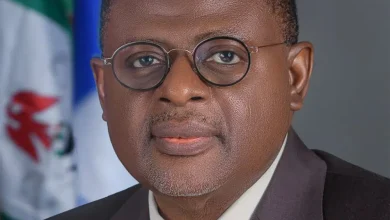Elevated inflation, a major economic challenge — Wale Edun

Minister of Finance and Coordinating Minister of the Economy, Wale Edun, has raised the alarm over what he described as elevated inflation, saying it was constituting the biggest challenge to attempt to stabilise the economy.
Edun said inflation undermines economic reforms and growth efforts, making it a critical focus for the government in 2025 and beyond.
Speaking when he appeared before the Senate Committee on Finance, led by Senator Sani Musa, APC, Niger East, during the defence of 2025 budget in Abuja yesterday, Edun highlighted measures, such as boosting domestic food production and improving food accessibility for Nigerians as part of solutions.
He said the surge in inflation has dampened expectations for a quick easing of monetary policy by the Central Bank of Nigeria, CBN.
Consequently, senators asked the minister to revise the 15 percent inflation benchmark projection in the 2025 budget, describing it as unsustainable.
Meanwhile, members of the committee disagreed with the submission of the minister that the economy was improving.
Recall that President Bola Tinubu had said during his visit to Abu Dhabi, United Arab Emirates, weekend that the reforms introduced by his administration were already yielding fruits.
The disagreement came after the finance minister also told the committee that after about 18 to 20 months of the leadership of President Tinubu, the economy was showing signs of improvement.
He also said the 2024 budget deficit as a percentage of GDP was falling, adding that foreign reserves were up.
Edun, who noted that at 3.5 percent per annum GDP growth, the economy was moving in the right direction, said: “We just have to maintain that path… Inflation remains stubbornly high, and Central Bank is doing its utmost to ensure it tames inflation so that living costs can come down.
‘’In particular, the government is focussed on increasing food production, so that food inflation, which is a major component, is ameliorated, and food is both affordable and available to Nigerians.
“Against the background of the fact that we now have market pricing of foreign exchange, market pricing of petroleum products, domestic refining of petroleum products, producing raw materials, we look forward optimistically to the strong performance of the Nigerian economy in the year 2025. And we have very good reasons to be optimistic that we will achieve it.
“The budget that you have, the appropriation in 2024 was N8.1 billion. We only managed to spend N5.1 billion, although the story does not end there, you senators, along with your colleagues in the House of Representatives, have extended the capital budget for 2024, as amended, all the way to June 2025, so that will give us additional opportunity to implement additional investments from the Nigerian economy.”
However, disagreeing with the minister, Senator Seriake Dickson, PDP, Bayelsa West, noted that despite all the minister had said, what was clear was that the improvement he was talking about does not resonate with the ordinary Nigerian on the street, whose purchasing power kept diminishing by the day.
Dickson, who advised the executive to improve on its performance of 2024, as what it had been doing so far clearly wasn’t working, said: “Here we are, aware that 2023, when your government came in, the exchange rate was N420, N450. And here we are talking about N1700 and still counting.
‘’I know Mr President, in his budget, made out a very ambitious plan of pegging it at N1500. Well and good, he himself admitted that it was ambitious but we wished for the best. That’s where we are.
“Inflation is skyrocketing, our debt exposures are increasing and the average purchasing power of Nigerians out there in the streets is dwindling by the day, it can’t resonate with them.
‘’When you say our economy is improving and foreign reserves are increasing, it doesn’t resonate. So, quite frankly, I will like you to use this opportunity to assure us what you have been doing, but most importantly, for this year 2025, this new year, what you intend to do differently because clearly, all the government has been doing from 2023 to now has not worked.
“It is good to hear what you have done, but we have not seen the practical results. You could have it in academic analysis and so on. What can you do to show that you will do things differently to ensure this is not just reflected in your records and analysis so that Nigerians out there feel it.”
Chairman of the committee, Senator Sani Musa, who tried to give soft-landing to the minister, said: “First, let me clarify that we are in governance and governance is all of us, so there is no political dichotomy when it comes to governance. We are all going to take responsibility for what is going on.
“I think, if I can summarise what he mentioned, is the issue of inflation, which you have spoken about and I would want the minister to realistically look at it very well, let’s make a statement that Nigerians will actually believe what we are doing.
‘’We know what we are doing, and there is no better way to do it now than the way we are doing it. So the comfort is for us to give Nigerians the language they will understand very well so that by the time they see the inflation coming down, they will believe that we have said it.”
Maintaining his position, Senator Dickson said: “Mr chairman, can I clarify it? Of course, with the little you know about my antecedents, I believe you know that I know that when we are discussing economic issues and so on, we are one government.
“But you see, the gentleman there is representing the executive arm, that’s why we are seated this way. So, when I said your government, I know this is the Senate of the Federal Republic, but he is a spokesperson defending the policies of the executive arm which I didn’t contribute to and which I don’t think you contributed to. Except maybe as a party man.”
Other lawmakers, who threw their weight behind the former Bayelsa governor, called for more efforts from the government to reduce the financial burden Nigerians were carrying due to inflation.
They also stressed the need for more investment in agriculture, production and processing to boost food security.
The senators urged the minister to fund the capital component of the budget against the backdrop that most Nigerians were not government workers and depend on the capital component of the budget to make a living.
In his response, Edun, who blamed the administration of President Muhammadu Buhari for the sorry state of the economy, said President Tinubu was reviving it, insisting that the economy was moving in the right direction and that Nigerians would soon begin to feel the effect.
He said: “Before President Tinubu took over, the country was fiscally, economically going downhill. Some people might use the word, finished and I will tell you why.
‘’Oil revenue, the mainstay, oil production was at 2 million barrels and going down. Insecurity stalked the land, agriculture production was down. How was the government getting by? It was living a false existence.
‘’When a payment needed to be made by the government, they simply printed the money. The Central Bank simply credited the government’s account.
“Of course, that was and is any day doomed to be a total crisis. President Bola Ahmed Tinubu saved the economy, he saved society. How did he save the economy? In his time, every single payment has been armed, and has been procured in the financial market on willing buyer, willing seller terms.
‘’Because they believe in his economic plan, the multilateral institutions, the repositories of the cheapest monies with 40 years to pay back, 10-year moratorium, one percent interest. We approached them, they looked at our outlook and they believed in it. All payments have been made in a manner that is fiscally sustainable since May 2023.”
The lawmakers also queried the non-adherence to the Supreme Court ruling on local government autonomy.
Speaking on the inflation rate, Senator Orji Uzor Kalu, APC, Abia North, noted that structural economic issues remained unresolved,.even though the CBN had taken measures to combat inflation through monetary tightening.
“Pegging inflation at 15 percent assumes a level of fiscal discipline and policy coordination that we are yet to see materialize. It’s not just about monetary policy, we need aggressive efforts on food security, energy stability, and industrial output,’’ he said.
Also in his remarks, Senator Tokunbo Abiru, APC, Lagos East, said: “Inflation is not just a monetary phenomenon. If we are not addressing revenue leakages and inefficiencies in public spending, achieving this target will remain a mirage.”
Responding to this, Edun defended the 15 percent inflation benchmark, saying it reflected the Central Bank of Nigeria’s confidence in its monetary policy framework and the government’s efforts to boost food production.
Insisting that it was achievable, he stated: “It is their signalling of where inflation is expected to lie that has given us this interest rate. However, we all have a role to play.
“Even if monetary policy helps to try to bring down inflation, however, on the fiscal side, it is important that we contribute to lower inflation, not just by really squeezing demand but by increasing supply.
“Increasing supply of food is one of the major commitments that is already laid out, we are having a dry season harvest now, and we have mobilised 250,000 farmers to be able to produce 750,000 metric pounds of assorted grains from dry season farming”.
Earlier in his opening remarks, Senator Musa, urged the finance ministry, ministries, departments and agencies , MDAs, to present a budget that was realistic, implementable, focussed and tailored towards attainment of measurable outcomes.
He also charged them to have a clear purpose for the budget that should translate to tangible benefits for the populace.
“The impact of this action will be released across all sectors, and as such, this budget must reflect prudence, accountability, and alignment with the priority of the people. We understand the challenges you face in balancing the demands of your mandate with available resources.
“However, as custodians of public trust, it is our collective responsibility to ensure that every one contributes meaningfully to our shared goals.
“This session is an opportunity for MDAs to address the challenges they face, supported by clear data and justifiable expenditures. This process is not adversarial but collaborative as we all share the common goal of advancing the economic well-being of our country,’’ Senator Musa sai



